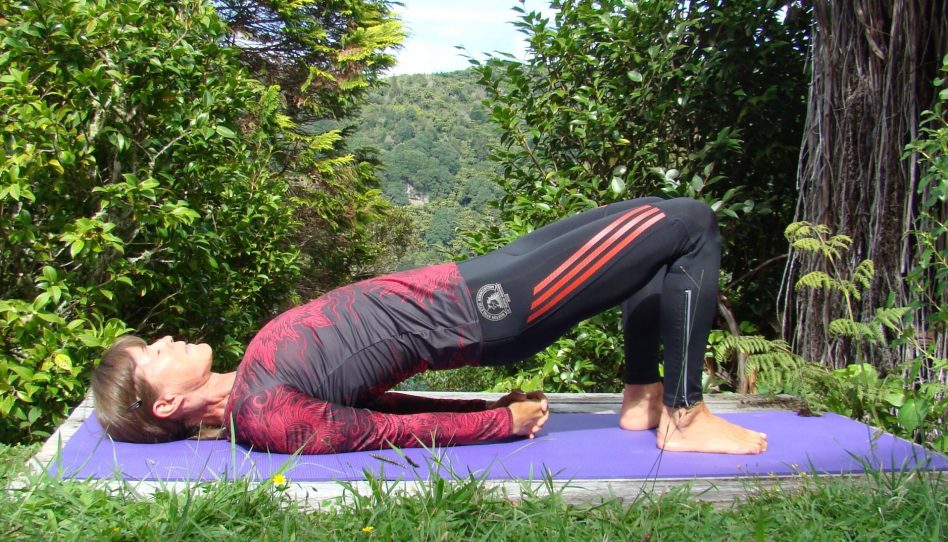Important Tapering to Optimize Final Preparation for Your Marathon
Uta Pippig is a three-time champion of the marathons in Boston and Berlin, winner of the NYC Marathon, writer and public speaker for “Take The Magic Step®” and “Running to Freedom™.” She is now also writing for the German daily newspaper “DIE WELT.”
The preparation for your race is almost done; the most difficult phase with the highest mileage is behind you. If you mastered these, as I described in the last column “Conquering the Highest Mileage Phase of Your Marathon Training,“ the remaining time of training will seem shorter and much easier. Now it is about recovering well and getting “top fit.”

In this training phase, referred to as tapering, you will continue to run, but over shorter distances, during which you will stabilize and further develop the previously achieved speeds. It is like a painting, which still needs some brush strokes, here and there some more color, more impression.
Soon you will be on the starting line, mentally and physically well prepared. But beware, these last training weeks can be rather tricky—you can easily miscalculate your tapering. Either by running too long because you are afraid to lose your endurance or too little because you are worried about not being recovered well enough on race day.
Please, read the following too: “Training Advice for the Second Build-Up Period of Your Marathon Preparation.“
A gradual reduction of your overall mileage volume will help you find the right measure. By being increasingly more recovered, you should feel fitter from week to week. Avoid “fighting” your running—let it roll, run with reserves. Certainly, you know how it feels when you are more energetic, as if you can’t hold back and can hardly wait for the race. This is exactly what you want to achieve: to develop an increasingly better running feeling and to build up necessary self-confidence because of the results already achieved. This will enable you to convert your completed training into the hoped-for performance in your competition.
One of the Common Tapering Options

One option many runners prefer is tapering over a period of three weeks, starting immediately after the last very long run. The volume is reduced to 70 percent compared to the previous week, and in the subsequent week to about 55 to 60 percent. The following competition week can be about 40 percent. This is, of course, not dogma, and individual deviations are always possible as long as the basic principle is retained. If you feel you need more recovery, reduce the distances even more. Listen to the signals your body is giving you. Many body functions — muscle cells, organs, and neural areas — have been heavily stressed in the previous build-up training phases. Also the glycogen stores and aerobic enzymes need some time to recover in order to reach optimal levels.
Please, read the following too: “How to Hydrate Properly on Warm Summer Workout Days.“
Mileage reduction means: shorter runs and more recovery between the main workouts. The resulting better physical condition can be used to increase the intensity of some of your remaining workouts. Important: Try not to overdo it. It’s best to start an interval program or a tempo run at speeds that you have already comfortably managed in the weeks before. If you feel good, there is nothing during the second part of the workout to keep you from improving those times, but do it in a controlled manner. Recovery, lower mileage, but a few selected workouts at higher speed are the tools that can make for a successful race.
Diet, sleep and mental recovery are important

Focus on a diet that includes enough water and the right carbohydrates such as lentils, beans, potatoes, sweet potatoes, basmati rice, oatmeal, some pasta and whole-grain bread. Especially in the last four to five days, this plays a crucial role in maximizing your glycogen storage.
For physical and mental recovery I recommend in addition to sufficient quality sleep, warm baths, a sauna and, if possible, massages. Anyone who has already recovered properly should reduce therapeutic measures in the last three or four days, so as not to get too sluggish, but rather maintain the necessary readiness.
Make sure you have the proper clothes for all weather conditions. Be aware of air conditioning in offices and hotels; the potential risk for getting a cold by being in public areas surrounded by people. It is highly likely that your body will provide all available resources for your best performance, especially if you have trained hard and are very much focused on your race. So understand that your immune system can be weakened in this situation.
Decide on the Best Race Strategy

These last weeks offer plenty of opportunity to recover and get mentally ready. With joy, confidence and realistic assessment of your training results, you now can decide on your race strategy. Because of the best evaluation of your own unique running potential you will not only be able to run the fastest time possible, but also create a long-lasting emotional experience that you will remember way beyond because of the way you ran during the marathon.
Avoid starting the race with a pace that is too high for your current fitness level. This is one of the biggest mistakes runners keep making, and because of it, quite a number of marathon dreams do not work out as planned. But this will not happen to you if you stay relaxed and use the anticipation and the marathon fever to prepare yourself wisely for your race.
Soon you will be standing with a host of highly-motivated fellow competitors in a sea of colorful shirts. It makes such an impressive picture when the starting gun goes off and thousands of excited runners cross the starting line.
Yours,

Adapted from my column „Mit diesen Tipps gehen Sie die Tapering-Phase richtig an“ in DIE WELT with permission.
*Uta Pippig, 52, is one of the most successful female marathon runners of the ’90s. She has won Berlin and Boston three times each. Today she lives in Berlin, Germany, and in Boulder, Colorado, and with her organization “Take The Magic Step®” she commits herself to increasing people’s awareness in the areas of fitness, nutrition and health.
Reading Suggestions:
- Keeping A Cool Focus: Just A Few More Days Until Your Marathon Celebration
- Are You Ready and Well-Prepared for Your Race?
- After the Marathon: A Guide to Quick Recovery
- Posted September 8, 2017
© Copyright 2017-2024 by Uta Pippig. All Rights Reserved.
More Insights

Uta’s Favorite Exercises to Improve Your Fitness and Running Technique
Uta Pippig has designed an at-home fitness program which only uses your own body weight, steps, and a Theraband. They are eight exercises that Uta often does herself.
Uta’s Yoga and Stabilization Guide for a Better Running Technique
Runners, especially, can benefit from a well-balanced yoga and stabilization program. Uta suggests effective combinations of poses and exercises that have helped her gain the flexibility and balance that can lead to a better running technique for everyone.
How a Clever Mental Focus Can Get You Through Running Injuries
Running injuries can be devastating, but learning to focus mentally can speed up the healing process. Uta explains how the forced break from running can actually provide future benefits.